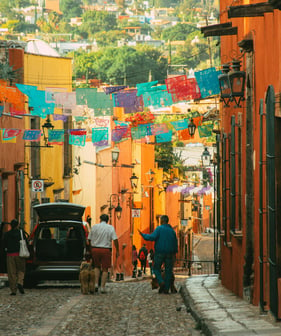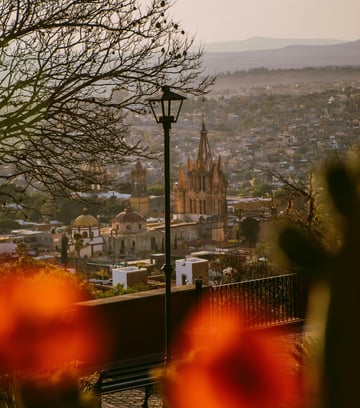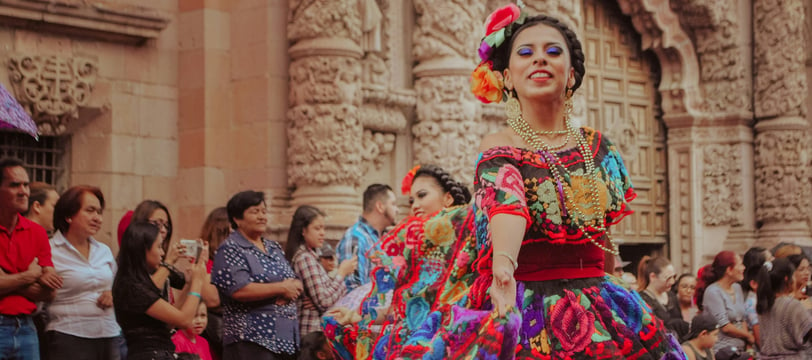San Miguel de Allende: A City That Finds You
I arrived in San Miguel de Allende not in search of anything in particular, but because of whispers carried by those who had walked its cobbled streets before me—tales of golden light spilling over colonial walls, of church bells breaking the hush of the afternoon, of a place where one could disappear without ever feeling lost.


The casa I rented was old, its ochre walls faded by time and sun, its arched windows half-covered in climbing vines. Rosa, the elderly woman who owned the house, welcomed me with a steaming cup of café de olla, its scent laced with cinnamon and something more elusive—perhaps memory itself. “San Miguel is not a place you seek,” she said, handing me the cup, “it is a place that finds you.”
Time began to move differently here, as if caught in the slow exhale of the wind that rustled through jacaranda trees. I wandered the narrow streets, each turn revealing a secret: an iron-gated courtyard filled with blooming bougainvillea, a doorway painted cobalt blue against the warm embrace of adobe walls, an old man sitting on the sidewalk playing a melancholic tune on his worn guitar.
In the Mercado de Artesanías, I met a silversmith who crafted delicate rings, each etched with a name he refused to explain. “There are ghosts in this city,” he murmured, his voice carrying the weight of something unsaid. I thought of the writers, the artists, the dreamers who had come before me—some seeking refuge, others merely drawn in by an invisible current, all leaving behind traces of themselves in the quiet corners of the city.
At dusk, I found myself before the Parroquia de San Miguel Arcángel, its towering spires bathed in the last light of the day. In the plaza, lovers whispered beneath lamplights, their words dissolving into the evening air, while an old couple swayed to the slow rhythm of a distant guitar. A musician, seated on the edge of a fountain, strummed softly and sang Pedro Vargas’ words:
"Caminante, no hay camino, se hace camino al andar..."
I closed my eyes, letting his voice settle into my bones. It was a song of journeying, of time flowing like water over stone, shaping a path where none had existed before. How many souls had wandered through these same streets, guided by longing rather than direction? I thought of Tennessee Williams, who once walked these alleys, perhaps seeking solace from the weight of his words, perhaps losing himself in the very same golden light that now stretched before me.
One night, I spoke with a painter who had come to San Miguel two decades ago. He had arrived for a single season and never left. “This city holds you with memories you haven’t yet made,” he told me, tracing the rim of his mezcal glass with one calloused finger. “It fills you with nostalgia for things you have never known.”
Perhaps that was San Miguel’s gift—or its curse. It did not merely welcome travelers; it absorbed them, wove them into its fabric. Here, past and present blurred like watercolor bleeding onto an old canvas, and time itself became something pliant, something soft, something just beyond reach.




When I finally left, walking slowly through the same cobbled streets that had first welcomed me, I felt an unfamiliar ache, as though a thread had been gently tugged loose from the fabric of my being. As I turned one last time to take in the golden glow of the city, I realized that Rosa had been right all along: I had not come looking for San Miguel. I had only allowed it to find me.
And I wondered, in some quiet moment years from now, if it would call me back.
San Miguel de Allende is not just a place you visit—it is a place that lingers, a city that finds you when you least expect it. But beyond the stories whispered in its cobbled alleys and candlelit courtyards, there lies a timeless beauty waiting to be explored. Discover the essence of this colonial jewel in our detailed destination guide: "San Miguel de Allende: A Timeless Jewel of Colonial Romance."
And see what’s happening now in our Travel Insights: "Cultural Highlights from San Miguel de Allende – Weddings, Literature, and Traditions".
✉️ Contact:
Curated by TrueTrip Hub |
© 2025 Invisible Atlas — All rights reserved.
Invisible Atlas
Journey Beyond the Visible
invisible.atlas@truetriphub.com
